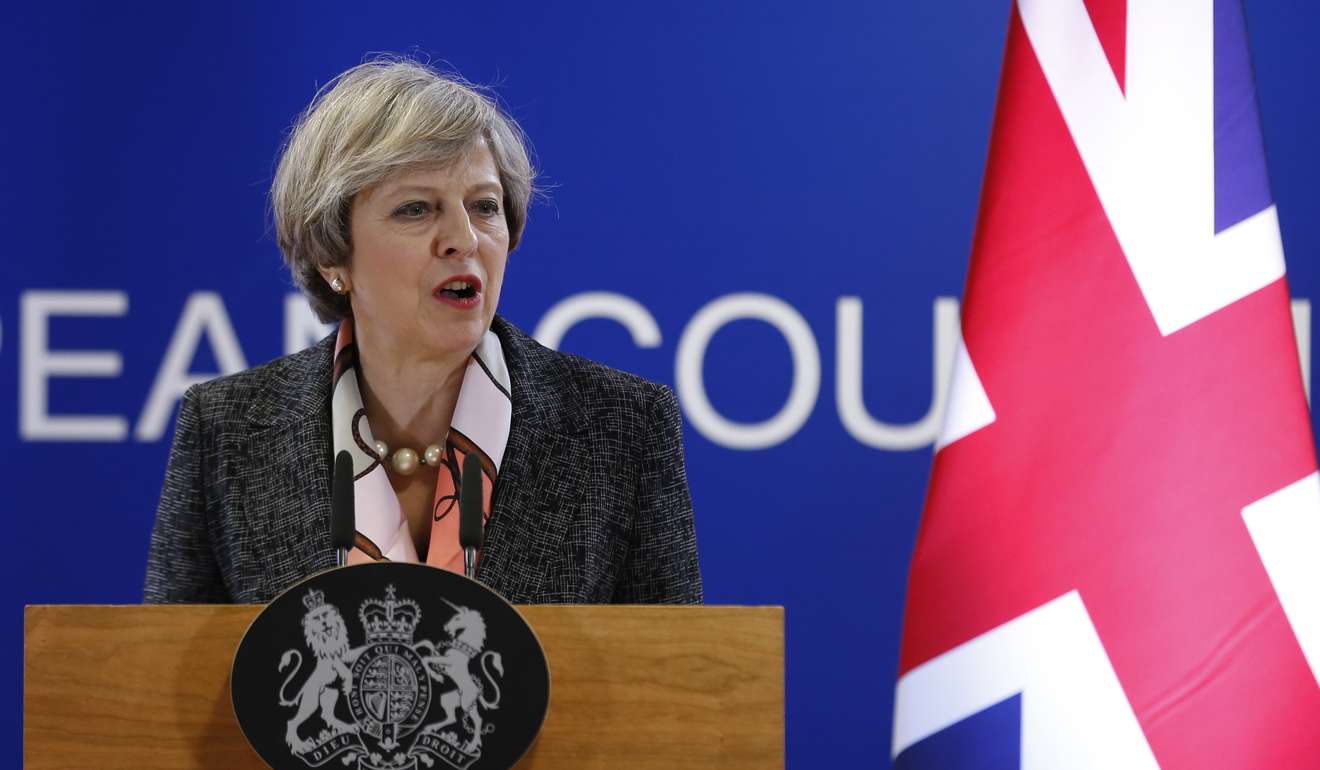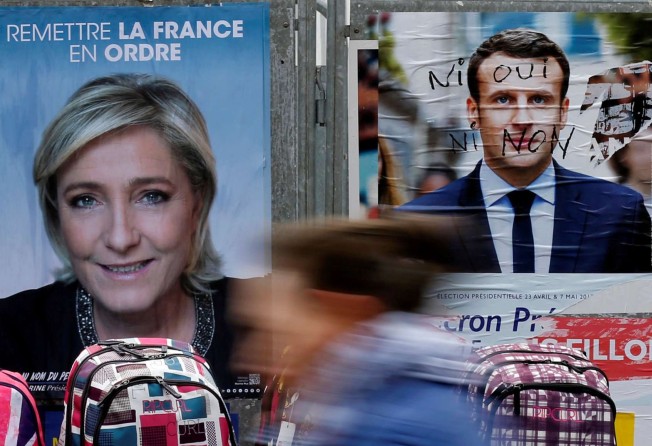
Opinion: Political risk may be overblown but it shouldn’t be ignored
Investors and traders are growing accustomed to benign market reactions to political shocks, decreasing their sensitivity to such risks

Should international investors stop fretting about political risk?
Judging by the surge in global equities on Monday as investors rejoiced over the near certainty that Emmanuel Macron will win the run-off in the French presidential election after the centrist candidate narrowly beat far-right leader Marine Le Pen in the first round on Sunday, it is tempting to conclude that political risk is overblown.
European equity funds, which suffered a staggering US$100 billion in outflows last year as the asset class was shunned because of concerns about the fallout from the Brexit vote and the threat of a Le Pen victory, have enjoyed a steady rise in inflows since February, led by institutional investors. According to Bloomberg, net inflows into European equity funds in April have reached US$7 billion.
For fund managers who steered clear of eurozone stocks this year because of perceived political risks, the sharp improvement in sentiment – turbocharged by expectations of a Macron victory in the French election run-off on May 7 – is a salutary reminder that one can miss out on big rallies if one is too pessimistic about the impact of political developments on markets.
Indeed, this is not the first time that investor worries about politics have been overdone.
Since Britain’s decision to vote to leave the European Union (EU) last June, the FTSE 100, the UK’s main equity index, has shot up 15 per cent. While this partly stems from the 13.3 per cent decline in the British pound versus the dollar (which has delivered higher prices and profits for the country’s exporters), even sterling is up 5.7 per cent against the greenback since mid-March despite prime minister Theresa May’s clear preference for a “hard Brexit”.
Fears that a victory for Donald Trump in last November’s US presidential election would upset markets proved even more misplaced.
Since Trump’s triumph, the benchmark S&P 500 index has surged 11.6 per cent while the dollar index (a gauge of the greenback’s performance against a basket of its peers) is still 1.1 per cent stronger despite having fallen more than 4 per cent since early January. On Wednesday, US stocks were once again approaching record highs, buoyed by a slew of better-than-expected corporate earnings and efforts by the Trump administration to push ahead with much-anticipated tax reform.
Even the recent escalation in geo-political risk has conspicuously failed to unnerve markets. The Nasdaq composite, the tech-heavy US equity index, passed the 6,000 level for the first time on Tuesday just as tensions on the Korean peninsula intensified.
So are markets being overly complacent, especially since the most significant political risks – Brexit, US economic policy, geo-political tensions and the stability of the eurozone – still pose a threat to sentiment?
Not necessarily. Investors are downplaying political vulnerabilities partly because economic fundamentals in many regions of the world are improving.
Just before last Sunday’s first round of the French election, the publication of a preliminary Purchasing Managers’ Index (PMI) survey for the eurozone showed that manufacturing and services sector activity this month hit a fresh six-year high, with France enjoying the strongest growth since May 2011 and even outpacing the expansion in Germany.
The US economy, meanwhile, is nearing – if not already at – full employment as private consumption remains robust and confidence is buoyed by Trump’s plans for tax reforms and infrastructure spending. Growth is also picking up in emerging markets, underpinned by a China-driven recovery in commodity prices.

Investors and traders are growing accustomed to benign market reactions to political shocks and geo-political instability, decreasing their sensitivity to such risks and, crucially, increasing the scope for a sharp and disorderly sell-off once a politics-induced deterioration in market conditions finally occurs – which it inevitably will at some point.
Just as excessive fear about political risk can prove costly, insouciance can prove even costlier.
International investors need to start looking beyond the headlines.
While Macron may have won the first round of France’s presidential election and is a virtual shoo-in for the run-off next week, nearly half the votes in the first round went to populist and nationalist candidates hostile to both the EU and Nato.
It was the electorate’s disillusion with political elites and globalisation that led to Brexit and Trump’s victory in the first place. The longer this disillusion persists, the bigger the risk of another Trumpian surprise.
For investors and traders, the big question is whether the next “surprise” will be the one that finally sends markets into a tailspin.
Nicholas Spiro is a partner at Lauressa Advisory